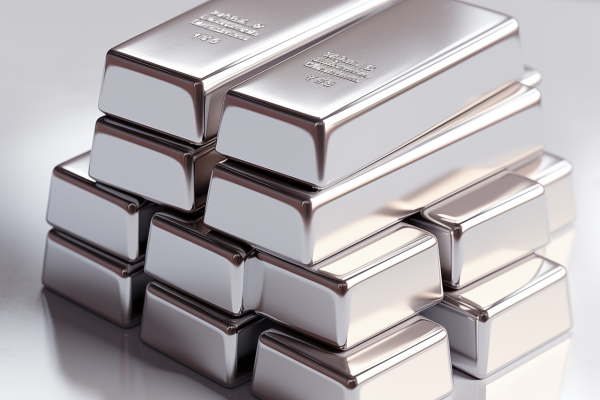July 31st, 2025 | 07:00 CEST
Who benefits from the customs agreement? Volkswagen, BASF, and Globex Mining
Is the customs agreement between the US and the EU a warning shot, as German Economics Minister Katherina Reiche says, or will the tariffs strike German industry at its core? The public debate about the customs deal, which includes 15% tariffs on EU goods, is in full swing. We examine the risks using the example of industrial giants Volkswagen and BASF and show that the agreement also has clear winners – Globex Mining's business model is ideally suited to the uncertain situation and could soon bring investors substantial returns.
time to read: 3 minutes
|
Author:
Nico Popp
ISIN:
VOLKSWAGEN AG VZO O.N. | DE0007664039 , BASF SE NA O.N. | DE000BASF111 , GLOBEX MINING ENTPRS INC. | CA3799005093
Table of contents:

"[...] Troilus has the potential to be an entire gold belt. All of our work to date points to this, and each drill hole makes the picture we have of the Troilus project much clearer. [...]" Justin Reid, President and CEO, Troilus Gold Corp.
Author
Nico Popp
At home in Southern Germany, the passionate stock exchange expert has been accompanying the capital markets for about twenty years. With a soft spot for smaller companies, he is constantly on the lookout for exciting investment stories.
Tag cloud
Shares cloud
IfW: Customs deal is "bad business"
Exports from the EU to the US will become 15% more expensive in the future, including vehicles and chemical products. Customs duties on aluminum and steel will remain at 50%. Chancellor Friedrich Merz warned that the agreement could "seriously damage the export-oriented German economy". The Federation of German Industries (BDI) stated that "even a tariff of 15% will have immense negative effects on the export-oriented German industry." Economists at the *Kiel Institute for the World Economy (IfW) criticized the agreement, saying it "jeopardizes the rules-based global economic order" and could be seen as capitulation by the EU to US demands. The economists called the tariff deal a "bad deal."
BASF and Volkswagen – Different signs, identical result
The new tariffs are problematic for the automotive industry because the US is still the most important export market. While sales in China are continuing to decline, the tariffs are now also weighing on exports to the US, a major car market. In April, German vehicle exports to the US fell by 13% and in May by 25%. As the tariff on vehicles was previously 2.5%, experts estimate that Volkswagen and Co. could lose around EUR 10 billion in cash flow in 2025 as a result of the new rules. Oxford Economics estimates that German vehicle exports could fall by 7.1%, which would have consequences for entire supply chains, disrupt production, and even lead to rising costs.
Although the chemical sector, and BASF in particular, also supplies the European market heavily with its products and is therefore not so dependent on exports to the US, the industry, which the EU Commission has described as the "industry of industries," is in crisis for other reasons. High energy prices, the requirements of the green transformation, and the third year of recession in Germany are weighing on industry and chemical giant BASF. A few weeks ago, BASF lowered its outlook for the current fiscal year due to "ongoing macroeconomic and geopolitical uncertainties."
History shows: Tariffs drive gold
While there appear to be clear and less clear losers in the tariff deal in the industrial sector, the situation looks different for companies in the precious metals sector. Tariffs typically lead to rising prices. Gold, in turn, benefits in times of inflation. The article "Gold and Trade Wars: How Tariffs Could Impact the Gold Market" examines historical developments and links them to rising gold prices. However, the effect is not immediate, but gradual, as tariffs must first affect prices, and rising prices are only gradually reflected in official statistics.
Globex Mining: Unique business model fits perfectly with the times
For investors who are risk-averse and see gold as a kind of crisis insurance, the business model of Globex Mining could be particularly appealing. The Company has a portfolio of around 250 commodity projects and selects industry partners to develop them further. In return, Globex receives royalties or profit shares. While junior mining companies require regular financing, this step is not necessary for Globex: partners invest in projects and usually handle the exploration. The projects span all critical raw materials, from rare earths to traditional industrial metals like copper, as well as precious metals. Since Globex invests exclusively in the US and Canada, risk factors such as a lack of legal certainty are eliminated. Even in the midst of a trade war, tariffs are unlikely to be a major issue for the raw materials sector: many raw materials are currently not mined in North America at all, or demand is significantly higher than domestic supply. Since self-sufficiency is a top priority due to the current geopolitical situation, industrial buyers are focusing more than ever on the security of supply.** This favors a certain degree of redundancy in raw materials and supply chains – instead of a single supplier from China, industrial companies prefer to diversify their sources.
While companies such as BASF and, above all, Volkswagen are likely to suffer from the EU-US tariff agreement and have recently communicated cautious outlooks, Globex Mining, with its robust project development and licensing model and its focus on stable regions, is uniquely positioned to benefit from the increased demand for safe havens such as gold and a stable supply of raw materials in North America. Globex's share price has been consolidating for six months and is currently hovering around the EUR 1 mark. With around 250 commodity projects and virtually no financing risk, a market capitalization of less than EUR 50 million appears to offer promising prospects. At BASF and Volkswagen, the euphoria of recent months has already faded. There is still no turnaround in sight for German industry.
Conflict of interest
Pursuant to §85 of the German Securities Trading Act (WpHG), we point out that Apaton Finance GmbH as well as partners, authors or employees of Apaton Finance GmbH (hereinafter referred to as "Relevant Persons") may hold shares or other financial instruments of the aforementioned companies in the future or may bet on rising or falling prices and thus a conflict of interest may arise in the future. The Relevant Persons reserve the right to buy or sell shares or other financial instruments of the Company at any time (hereinafter each a "Transaction"). Transactions may, under certain circumstances, influence the respective price of the shares or other financial instruments of the Company.
In addition, Apaton Finance GmbH is active in the context of the preparation and publication of the reporting in paid contractual relationships.
For this reason, there is a concrete conflict of interest.
The above information on existing conflicts of interest applies to all types and forms of publication used by Apaton Finance GmbH for publications on companies.
Risk notice
Apaton Finance GmbH offers editors, agencies and companies the opportunity to publish commentaries, interviews, summaries, news and the like on news.financial. These contents are exclusively for the information of the readers and do not represent any call to action or recommendations, neither explicitly nor implicitly they are to be understood as an assurance of possible price developments. The contents do not replace individual expert investment advice and do not constitute an offer to sell the discussed share(s) or other financial instruments, nor an invitation to buy or sell such.
The content is expressly not a financial analysis, but a journalistic or advertising text. Readers or users who make investment decisions or carry out transactions on the basis of the information provided here do so entirely at their own risk. No contractual relationship is established between Apaton Finance GmbH and its readers or the users of its offers, as our information only refers to the company and not to the investment decision of the reader or user.
The acquisition of financial instruments involves high risks, which can lead to the total loss of the invested capital. The information published by Apaton Finance GmbH and its authors is based on careful research. Nevertheless, no liability is assumed for financial losses or a content-related guarantee for the topicality, correctness, appropriateness and completeness of the content provided here. Please also note our Terms of use.




